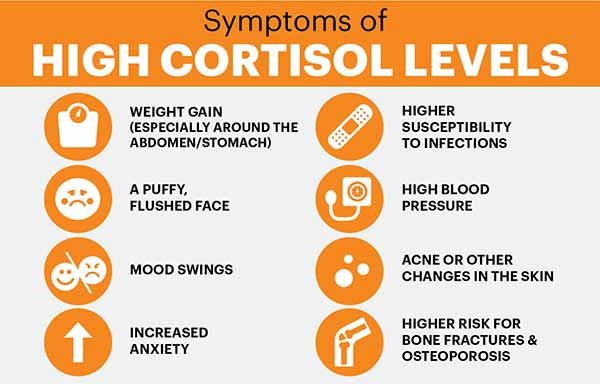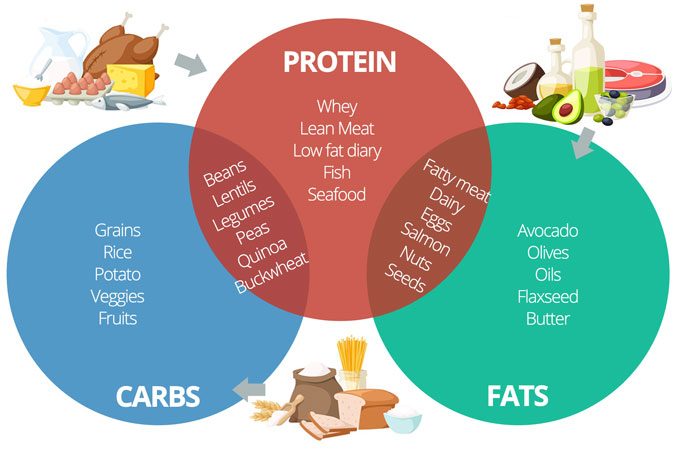
You’ve already taken the first step in taking back control of your health: chiropractic. Your adjustments have you feeling great but more importantly, they have you functioning better. Your energy is higher than before, you’re no longer getting headaches every day, and overall, you’re feeling far more full of life than you previously were. The next step is for you to take an active role in your health and well being by adding exercise into your routine and improving your nutrition.
Generally, people’s desire to get healthy is actually because they want to lose weight. Having less weight on your frame means there is less stress on your joints, ligaments, and organs, which – when paired with chiropractic care, will allow you to live your life more fully.
Weight loss is – to put it simply – is nothing more than calories in vs. calories out. It is a simple, unbreakable law of physics (the first law of thermodynamics) that energy cannot be destroyed, it can only change form. Meaning that if the energy entering the body is greater than the energy leaving the body, the body will store the excess energy usually in the form of body fat. This also goes the other way, too; if we take in less calories we will lose that energy (lose weight).
Having said that, is nutrition really that important then? Isn’t exercise and exercise alone good enough to get rid of the weight if you’re burning more than you consume? Is it really necessary to cut out your daily chocolate chip breakfast muffin and large double double?
Eating TOO LITTLE
Most people are aware of what we just discussed; if they eat less calories than they are expending, they will lose weight. However, there is a potential that reducing calories too dramatically for an extended period of time can actually push you further away from your weight loss goals. A severe caloric restriction can cause rapid weight loss initially, but in the long run it will likely cause the opposite to occur.
There is a significant amount of clinical data that suggests an extended, excess restriction of calories increases the amount of cortisol in the body. “Cortisol is a steroid hormone that regulates a wide range of processes throughout the body, including metabolism and the immune response. It also has a very important role in helping the body respond to stress.” (yourhormones.com).
Cortisol triggers the release of insulin – with more cortisol, there is more insulin flowing throughout the body. Insulin plays in storing calories for future use, usually in the form of body fat. When insulin levels are high, that means the body is storing more energy (calories) which can lead to weight gain. Not only that, but cortisol is also increased when there is psychological stress such as the stress that reducing calories can place on a person.

Metabolism is also decreased when the body is put into an extreme caloric deficit. This is because when your body is not receiving enough energy it goes into “starvation mode”. During this time, your metabolism slows down because your body wants to preserve as much energy as it can. It also will start to take more of the calories that is it getting by storing them as energy (fat). Upon returning to normal eating habits, this will mean that you have a harder time burning the calories you’re consuming efficiently (due to decrease in metabolism), leading to even more weight gain.
Lastly, one cannot expect to get the most of their workouts and exercise regime when they’re not receiving enough energy to fuel those workouts. Muscles need energy to work and repair themselves – so when there are not enough calories being consumed to fuel those muscles, they will start to catabolise (break down). Did you know muscles burn more calories than fat per pound? You WANT to have muscle – the more muscle you have, the more calories you’re burning = the easier it will be to shed that 30lbs and keep it off.
This is why extreme calorie restriction can work against weight loss efforts. You should never be eating less than your BMR (basal metabolic rate), you should be basing your energy consumption off of your TDEE (total daily energy expenditure).
What makes up your calories?
More often than not, people feel as though they need exercise and exercise alone to trigger their bodies into losing weight, and while exercise does play a very important role in the weight loss journey, it isn’t the only factor that needs adjusting. Have you ever heard the phrases “out can’t out train a bad diet?” or “abs are made in the kitchen”? They’re popular phrases, and for a good reason too: your nutrition is just as, if not more important than exercise when it comes to getting healthy.
Take the following two people for example:
Person #1: diet consists of fast food, microwave meals, and bags of chips and cookies
Person #2: diet consists of whole grains, vegetables, lean meats, and fruit
Assuming that both of these people are of the same age, weight and gender, if they were both to control for calories (both consumed 1800 calories worth of food per day), and expended roughly the same amount of energy, their weight loss/gain would be about the same. However, 1800 calories of fast food and 1800 calories of whole grains and vegetables look very different:
As you can see, 1800 calories of fast food is equivalent to one meal, and one snack. 1800 calories of whole food is enough food to last throughout the entire day; 3 meals, snacks and sweet treats included. Theoretically, a person could survive off of person #1’s diet calorie wise, but it is likely they wouldn’t be satiated for very long. When so many calories are contained in such a small amount of food, although you may have enough calories (energy) to fuel you, your stomach likely won’t be triggered as “full” for a long time after the meal is consumed. This means, that the person who ate a Big Mac meal for lunch will likely be hungry again by the evening time, and therefore more likely to eat extra calories on top of their recommended 1800 in order to feel satisfied.
Why WHAT you’re eating is important
As well as diet #2 being more satiating of the two diets, it is also a clear winner when it comes to being the more balanced diet of the two. A good balance of macro-nutrients (carbs, protein, fat), AND micro-nutrients is very important for maintaining good health. Micro-nutrients (vitamins and minerals) are essential for the proper functioning of every system in the body – each vitamin and mineral is responsible for a specific role within the body. Macro-nutrients are essential for fueling and building the body – without enough protein, muscles will start to degenerate, and without enough carbs and fat, energy levels will start to decrease dramatically.
So, before you start getting down on yourself because your exercise regime isn’t helping you shed the pounds, try taking a look at your diet. Without good eating habits our bodies are not going to be able to deal with the stress of exercise as well as they could when fueled with wholesome foods. Give your body the best chance at getting healthy!
Carbohydrates
Carbohydrates are placed on a scale known as the glycemic index which ranks carbohydrates according to how they affect glucose levels in the blood. Carbs with a glycemic index (GI) under 55 digest slower in your body than those with a GI over 55 digest quicker. With a quicker release of carbs (high GI), it means there is a quicker spike in energy followed by a more obvious crash - slow release carbs (low GI) spike blood sugar levels at a much slower pace, meaning that the rise in energy and subsequent crash are not as drastic as that of the high GI sugary snack.
Carbs the body’s number one source of energy, it depends on them to function properly. The brain runs on glucose (you get glucose from carbs) – without glucose, your ability to think, learn, and retain information will dramatically decrease. Examples of good quality carbs are sweet potatoes, whole grains, fruits, and vegetables.
Protein
A number of physiological processes start to occur in the body upon working out or exercising; muscle breakdown (catabolism) being one of them, especially during resistance training. Muscle breakdown isn’t as bad as it may sound. This type of muscular breakdown is good and necessary for becoming fitter and stronger. However, this necessary process of catabolism and rebuilding (anabolism) requires the proper fuel to do so. That fuel, is protein.
Protein is one of the most important building blocks in your body. The body however, does not store protein which is why it is so important to consume an adequate amount in your diet. It is important to note though, that you won’t magically get strong by eating only protein and not exercising as well, nor will eating more protein mean that you will get stronger quicker. Protein that the body doesn’t need will be excreted out. The general guideline for protein intake is 0.8-1.2g protein per kilogram (1kg=2.2lbs) of body weight.
Fat
Dietary fat is also an essential part of your diet – that’s right, it’s not the enemy! Fat provides another source of energy for the body, supports cell growth, and keeps your organs warm and protected. Fats are also helpful in absorbing nutrients in the body from other foods (and sometimes even the only way).

Carbohydrates, protein, and fats can be found in any food; good or "bad". Micronutrients however, cannot be found in all foods in the quantities that we need.
Micronutrients
There is a long list of micronutrients that are necessary for our body to function at it's best, here are 5 of them, and why they're important.
- Folate – helps with the formation of red blood cells, which are important for getting oxygen around the body
- Iron – used to create haemoglobin – the stuff in red blood cells that carries the oxygen to be delivered
- Magnesium – a natural muscle relaxer – anxiety, tension, and muscle spasms are all signs of a magnesium deficiency
- Vitamin A – essential for maintaining vision – that’s where the old “eat your carrots and you’ll be able to see in the dark” tale came from!
- Vitamin D – absorbs calcium to help with bone growth – a lack of V-D can also be responsible for an onset of depression
Other important nutrients:
Essential fatty acids (EFA) – your body can synthesize every EFA besides two: alpha linoleic acid (omega-3), and linoleic acid (omega-6). These two EFAs must be consumed as a part of a balanced diet to reap the benefits of them. Omega-3 and -6 play an important role in skin and hair growth/health, brain function, metabolism, reproductive system health, cell membrane integrity, and overall functioning, growth, and development of the body. Omega-3 more specifically has also been linked to a potential decrease in pain (muscle soreness post exercise), and an increase in joint health.
It matters what you're putting into your body. You wouldn't put old oil into your car and expect it to work well for long, so why are you putting foods into your body that won't fair you well in the long run?
The success of your chiropractic care doesn't rely completely on the Doctor. It is up to you to take an active role in your health outside of the office as well to ensure that you get the best results possible!

